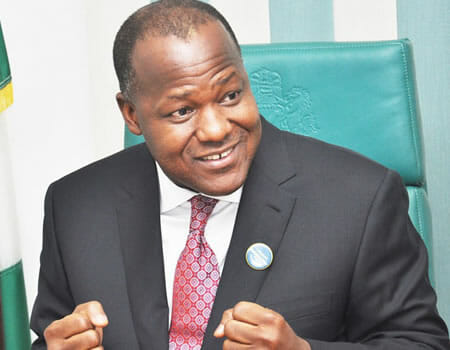Kaduna (Nigeria) – Nigeria’s Speaker of the House of Representatives, Yakubu Dogara, has counselled lawmakers in Africa to protect democracy by ensuring that the will and aspirations of citizens are priority in dispensing their duties.
The Speaker who stated this when he received a parliamentary delegation from the National Assembly of the Republic of Niger led by Sanousi Mousa Mareini, said it would be dangerous to take the practice of democracy for granted.
Dogara stated, “Unfortunately, we have had military intervention in governance in both Niger and Nigeria. It was only in 1999 that democracy was restored in both countries.
“That, therefore, means that we cannot take this practice of democracy as if it is automatic or as if it cannot be threatened. If it was threatened in the past, it means that it can also be threatened today.
“It is now left for us, as members of parliament, to use our very vantage positions as lawmakers to make sure that we are investing in the development and to ensure prosperity for the people.
It therefore means that for democracy to be sustained, it must work for the people and not for us.”
Speaker Dogara urged them to ensure that they are active in their government, serving as checks through their legislative oversight, of the activities of the executive to ensure that it delivers on the promises of democracy which is freedom, liberty and the pursuit of happiness.
He went further to add that when a parliament isn’t functional, the benefits of democracy cannot be enjoyed by the people. He cited a case with the states in Nigeria, “where democracy is weak because the parliamentary are a bit weak.”
To correct this situation, he added, the federal parliament decided to grant autonomy to state legislatures to empower them more to properly conduct oversight over the executive.
“Where the legislature is not independent or have the tools to work, tendencies are that it will have a crippling effect on its functions,” he added, while also calling for institutions that will enhance capacity of lawmakers and support staff such as the National Institute of Legislative Studies in Nigeria.
